Losing Not Just One World, but Two
A new book, "Patriot Number One," tracks the journey of a political refugee from China to the underground world of undocumented immigrants in New York.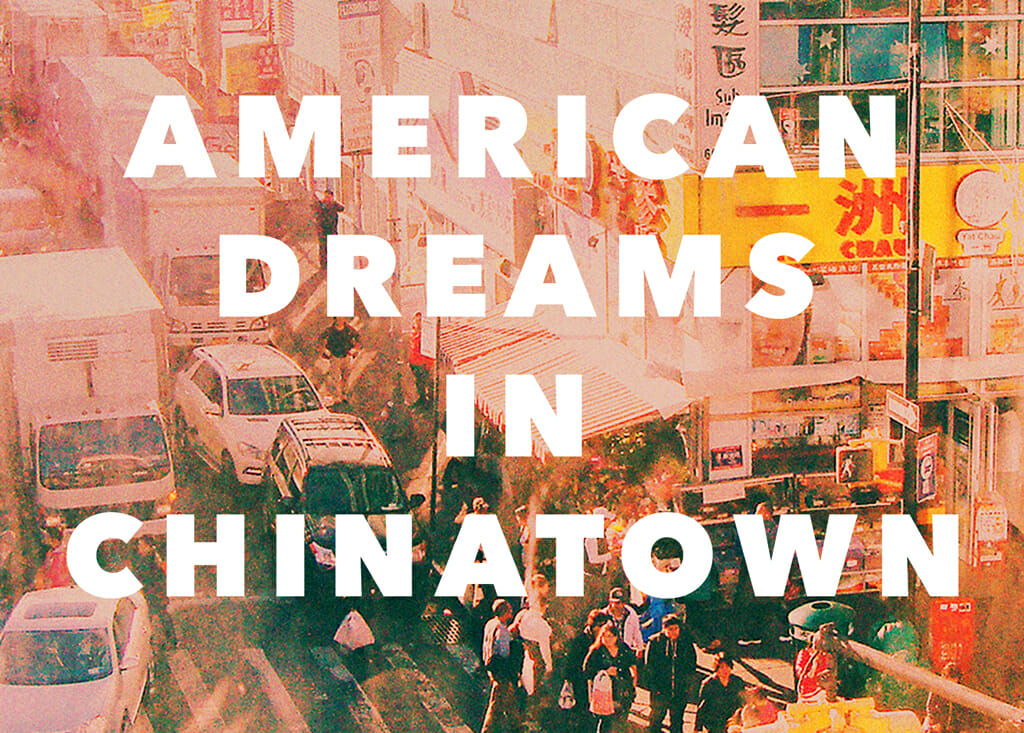 Penguin Random House
Penguin Random House
“Patriot Number One: American Dreams in Chinatown”
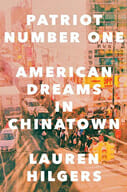
Purchase in the Truthdig Bazaar
A book by Lauren Hilgers
Reviewed by Elaine Margolin
Upon first glance at Lauren Hilgers’ life as a poet from Austin, Texas, who fled to New York as a young woman, she seems an unlikely candidate to immerse herself in the troubled lives of undocumented Chinese immigrants in Flushing, New York. But Hilgers, best known for her poetry, has written “Patriot Number One: American Dreams in Chinatown,” a wondrously compelling work, imbued with an innate empathy and curiosity. She left for Shanghai in 2006 where she worked as a journalist for six years, writing stories about the political scandals in Beijing. She eventually made it to Wukan province, where enraged rural villagers were protesting local corruption and land grabs that had made their already difficult lives more desperate.
The protesters in the streets were catching the attention of the world press, and carrying placards that pleaded for democratic reform. Zhuang Liehong, the protagonist of “Patriot Number One,” was one of the protesters. He realized what was happening in 2008, when he saw an online advertisement offering Wukan’s real estate for sale. The advertisement claimed, falsely, that each of Wukan’s villagers had received the equivalent of 10,000 U.S. dollars in exchange for their land. Further research uncovered that the village chief had been selling off land since the 1990s. He knew that no one in Wukan had received a cent, and opened an anonymous instant messaging account on QQ to inform his fellow villagers of his findings. He dubbed himself “Patriot Number One.” The response was overwhelming. Soon Zhuang and others had organized and were taking to the streets—something intolerable to the Chinese government. Hilgers reveals the ruthless measures taken by the Communist government to squash dissent. Local governments or hired thugs were often allowed to silence any opposition before it became an embarrassment. Many of Zhuang’s close friends and fellow protesters were arrested, beaten and imprisoned for several years. One died under mysterious circumstances in prison. Zhuang was arrested for 21 days but mysteriously released, perhaps by mistake. But he knew his fate was in serious jeopardy. He had to escape, along with his wife Little Yan, and their infant son. He spent days inside his tea shop with the windows shuttered, thinking of how to get out.
Around this time, Zhuang met Hilgers while she was reporting in Wukan. He sought her counsel in his shop. She didn’t believe he would ever be allowed to leave China. But she was moved by his plight.
When he somehow managed to secure permission to go to America on a tour group, he knew he would break away and escape into the underground world of undocumented immigrants in New York. He convinced his wife that she should join him, persuading her to leave their child with her parents until they could find a way to bring him over too. She reluctantly agreed. In New York, he called Hilgers and asked for her help. She agreed.
Zhuang’s plan, once he reached New York, was to apply for political asylum, and find sanctuary in Flushing, where over 200,000 Chinese residents lived, believing it was “the best landing spot for the truly rootless.” He was already nourishing glorious fantasies of reinventing himself in America, where he believed opportunities he had not yet dreamed about would be open to him. Hilgers describes his initial optimism: “He felt sure, when he considered the plan, that the Americans would be sympathetic to his situation. He was a lover of democracy trapped in a corrupt corner of Guangdong Province.” He knew from the moment he planned his escape that America would have to be his destination: “It had an allure no other country could match. It was a country of justice and freedom, a place with values that paralleled his own. He had to whisper it when he said it: America. He had heard its asylum policies there were favorable, and he understood it to be a wealthy country that took care of its citizens. Work would be easy to find there. People would be friendly. Some might even know his name. He imagined a warm welcome from Western democracy advocates. He thought of returning to Wukan later, a success. He envisioned himself on a boat passing Liberty Island, a little windblown and visibly, palpably free.”
But the reality of America was heartbreaking. He was a 30-year-old Chinese man who had not even graduated junior high school. He knew almost no English. Even with Hilgers’ engaged help in finding work, housing and filing the paperwork needed to secure his green card and political asylum as well as apply for his son’s release from China, it was quickly evident to Zhuang that the fantasy he envisioned was just that. He struggled to hold on to jobs as a Chinese deliveryman, a taxi driver, and a driving teacher, and floundered at finding suitable housing for him and his wife. He moved frequently, irritated to be living in a dingy single room with loud neighbors and a shared kitchen and bathroom. He remained obsessed with Wukan, spending hours online each day searching for news. His marriage became increasingly strained. His wife found steady work in a nail salon but came home each day nauseated from the fumes. The couple stopped talking to each other.
Zhuang eventually connected with Chinese pro-democracy activists in Flushing, and befriended another dissident named Tang Yuanjun. Tang ran an office that served as a meeting place to make plans for future, largely futile, dissent. Hilgers explains Zhuang’s mindset and the attitude of his peers:
If engaging with life in Flushing was difficult for the majority of Chinese immigrants, the pro-democracy activists who made up Tang’s supporters and friends struggled more than most. Some had left after watching fellow students and innocent bystanders die in Tiananmen Square or after suffering mistreatment in prison. Others had escaped, fearing for their lives, and had been granted asylum. The min yun, a shorthand term used frequently in Flushing for China’s pro-democracy activists [from the words minzhu, meaning ‘democracy,’ and yundong, meaning ‘campaign’], taken as a whole, were a stubborn group of people: Tiananmen Square activists, China Democracy Party members, human rights defenders, and grassroots organizers. They might have had comfortable lives had they ignored government corruption or stopped agitating for democracy. The simple fact of being in the United States did not often shake their resolve; their interests and obsessions were firmly planted in China. Their bodies were in New York, but their thoughts were elsewhere.
Zhuang’s aching sense of dislocation comes from losing not just one world, but two. His wife, Little Yan, had a different temperament. She missed China, her family, and her son greatly. Hilgers believes, “If Little Yan shared Zhuang’s sense of predestination—that she would live a different life, somewhere far away from home—she felt none of his pride of origin. She didn’t grow up wanting to impress anyone. She felt no drive to rebel against the realities of her life: rebellion wouldn’t get her far anyway. There had never been any question that her mother and father would make all her most important decisions.” Little Yan found her husband’s behavior in America infuriating. He seemed to her just a fumbling man who couldn’t find steady work.
Even when Zhuang and Little Yan finally receive political asylum and are reunited with their son in New York, the essential problems of survival persisted. Zhuang, like many Asians and Asian-Americans, felt invisible in America, and fantasized about his heroic days back home, when life felt meaningful to him. Hilgers explains that during those years, “Zhuang felt as if he had found his purpose. The protesters looked to him for instruction, volunteering to help him gather evidence of land grabs. …”
“Patriot Number One” startles the reader with its brutal revelations about China’s restrictions and mechanisms of repression. But it ignores the country’s historical context. This is a nation still reeling from the aftereffects of Mao’s madness, which has only in recent decades come to light. When I was in college in the late 1970s, I took a course called “Communism and China.” My professor assigned Mao’s Red Book and pontificated enthusiastically on the glorious revolution taking place in China. We were taught how the masses had been put in control of their society and allowed to make the necessary changes to help their country thrive. There were many class discussions on the wondrousness of the collective spirit and the concept of self-criticism that the Chinese citizenry took part in regularly as part of their attempt to create a perfect world. I recall being impressed, and it was only years later, when the truth was revealed about Mao and the Cultural Revolution, that I was forced to reassess all I had been taught.
The current President Xi of China was a victim of Mao’s regime. Xi’s father had been one of Mao’s top commanders. But when Mao purged his elite lieutenants, a teenage Xi was thrust onto the streets. His father was tortured and imprisoned for many years. His sister committed suicide. Xi survived. He was sent to a rural province to be reeducated, and lived in a cave for seven years amid rural Chinese peasants, working feverishly among them. This time, he claims, taught him to understand poverty and suffering. When he became president, many hoped he would bring reform, but he proved to be a cautious leader. He has attempted to crack down on corruption and worked to improve maternal mortality and promote mass literacy, but does so while strictly enforcing the supreme power of the Chinese Communist Party, which he rules with an iron hand. Hilgers’ book would have benefited from some historical context, since Zhuang and Little Yan, born after Mao, still carry within them the emotional baggage that was inflicted upon their parents and grandparents during Mao’s reign. Her book seems oblivious to these underpinning psychological forces and their long-term effects. Chinese life under Mao is now seen by historians as a calamitous event, with harrowing consequences comparable to the suffering inflicted by Stalin and Hitler.
Finally, Hilgers sometimes seems a step too removed from her own narrative. She can feel at times like an invisible presence, and we long to hear more about what drives her. We never learn what possessed her to go to Shanghai as a young woman in 2006 in the first place. Or why she was willing, as a new wife and mother in Brooklyn, to become so entrenched in Zhuang and Little Yan’s lives when they arrived. Her emotional reticence hinders her otherwise stunning narrative.
Your support matters…Independent journalism is under threat and overshadowed by heavily funded mainstream media.
You can help level the playing field. Become a member.
Your tax-deductible contribution keeps us digging beneath the headlines to give you thought-provoking, investigative reporting and analysis that unearths what's really happening- without compromise.
Give today to support our courageous, independent journalists.
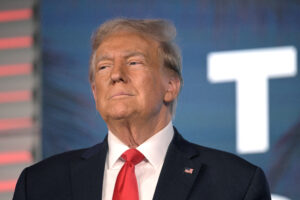
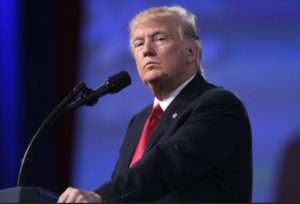
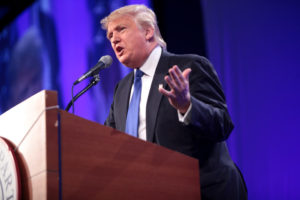



You need to be a supporter to comment.
There are currently no responses to this article.
Be the first to respond.